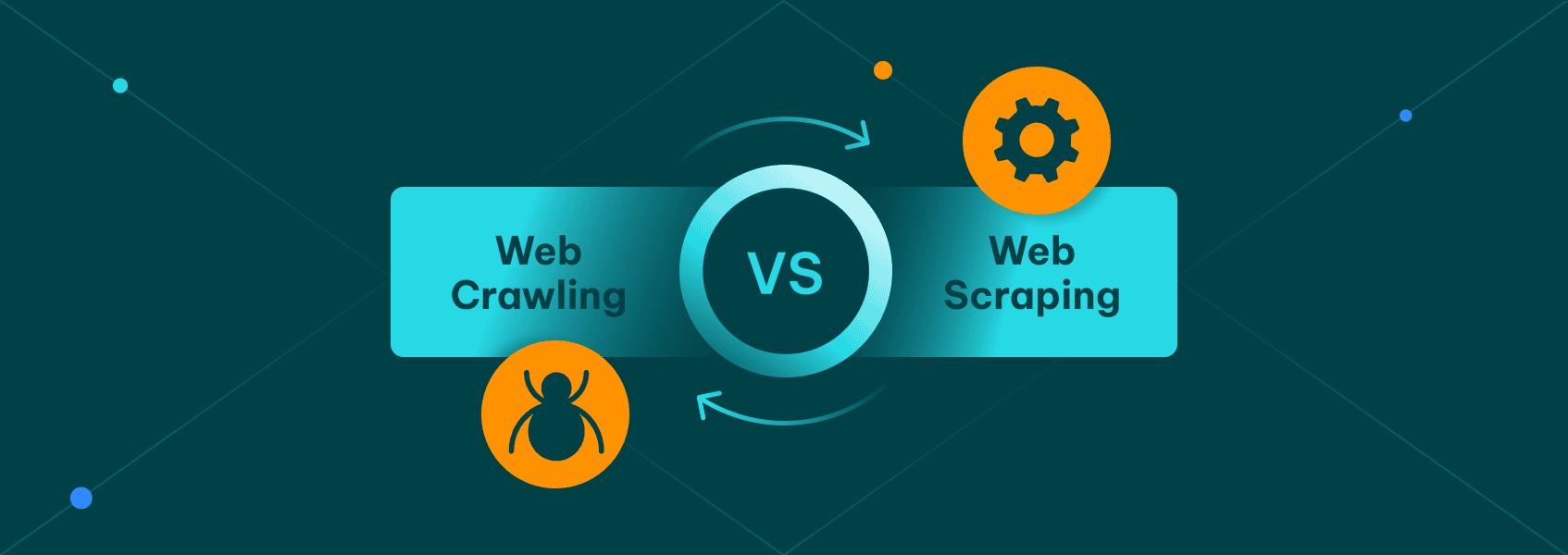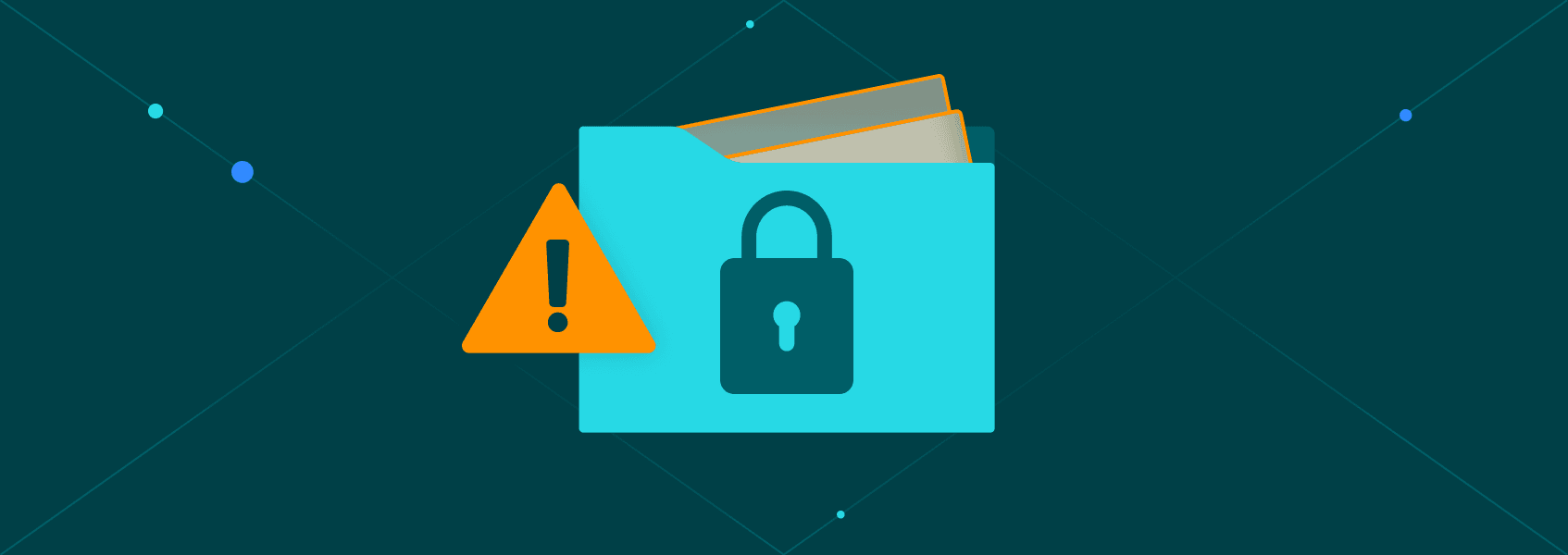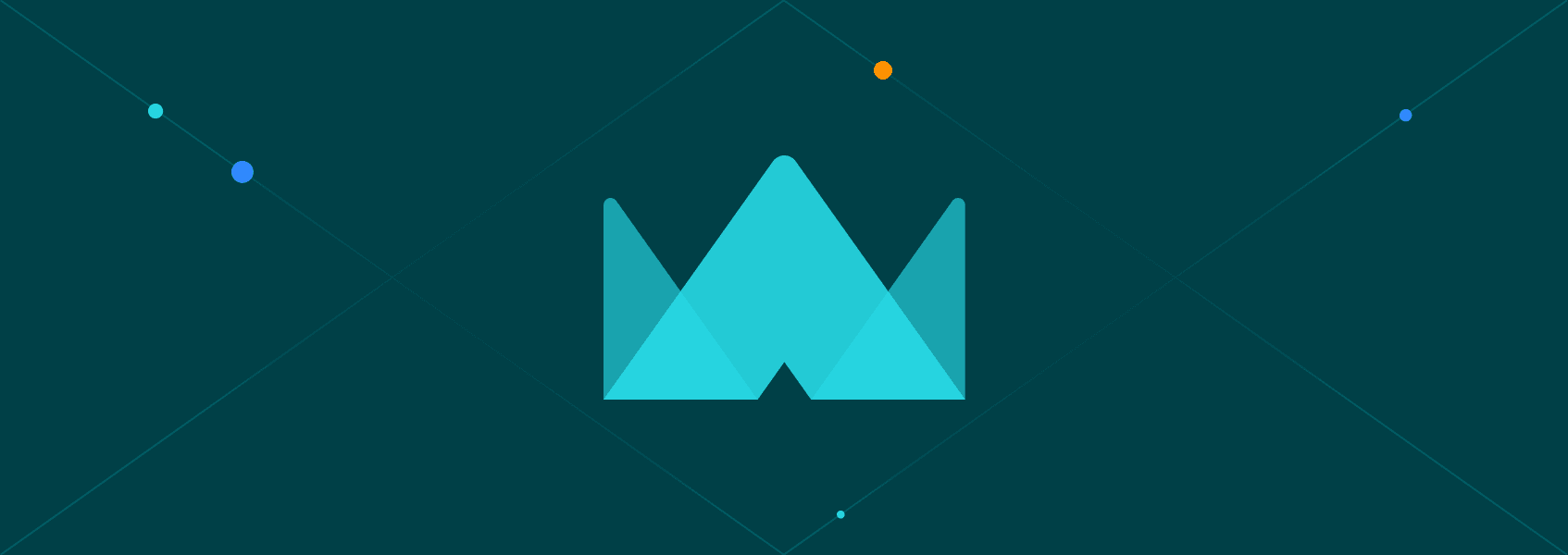Web Crawling Vs. Web Scraping
Proxy fundamentals

Vilius Dumcius
You might have heard of two terms that are often used interchangeably – web scraping and web crawling. Although both are data extraction methods, they have significant differences you should be aware of if you’re going to use each.
It’s important to differentiate between the two to remain within legal and ethical online data-gathering limits . In this article, we’ll explain the fundamental web crawling vs. web scraping differences. Let’s take a look!
What Is the Fundamental Difference Between Web Crawling and Web Scraping?
Web crawling vs. web scraping is best defined by data harvesting scope. Web scraping is more narrowly targeted at specific online information, like commodity prices, user reviews, product descriptions, etc. Meanwhile, web crawling gathers all data, often unstructured, and goes through each backlink to check the whole website. Let’s take a look at their similarities and differences.
How Does Web Crawling Differ From Web Scraping in Terms of Data Extraction?
The short answer is that web crawling does not differentiate. One of its most popular use cases is search engine indexing. Google and Bing (and other search engines) use web crawlers (often called spiderbots) to inspect the World Wide Web and identify its contents, which is later used to rank the website in search engine results pages.
For example, Google uses spiderbots to go through e-shops, review sites, and forums to index them and place them accordingly on its search engine. Web crawling is also used in academic research that requires big data. However, in most cases it is accompanied by web scraping to extract specific information relevant to the research. In other words, web scraping often accompanies web crawling. You can learn more about Google’s web crawling policies in its developers guide .
Both of these data extraction methods use different tools. Scraping tools require at least some manual configuration (at least in the very beginning) to retrieve only relevant data. Businesses configure scraping tools to target specific elements in selected URLs. On the other hand, web crawlers are fully automated crawling tools that gather all information without prior customization. Once the user requests to extract specific information from the vast web crawling data set, they switch to web scraping.
Which Technique, Web Crawling or Web Scraping, Is More Suitable for Data Collection at Scale?
Both data extraction methods can be used for data harvesting at scale. However, web crawling should be considered as a primary tool to go through all the information on the website, as its tasks may not require data structuring, for example, for web archiving.
Simultaneously, scraping tools are often accompanied by rotating residential proxies to target hundreds of websites for specified information. Generally, a crawler bot goes through one website and all the backlinks found inside. Web scraper goes through dozens, if not hundreds of specified URLs, gathering particular information, like HTML headers, CSS selectors, and other elements that store relevant data. To learn more about the best web scraping practices, drop by our dedicated post on web scraping best practises .
The answer to which technique is more suitable for data collection at scale depends on the purpose of data harvesting. To summarize, both data extraction methods excel at collecting vast amounts of information, although in different ways.
What Are the Key Considerations When Deciding Between Web Crawling and Web Scraping for Your Project?
It’s essential to define your end goal before deciding between web crawling vs. web scraping for your project. Firstly, identify whether you require structured or unstructured data. Use customizable web scrapers when you require only specific information returned in .CSV, JSON, or .XLSX formats. Here are the most popular web scraping use cases:
- Market research
- Price comparison
- Competition monitoring
- Leads generation
- User sentiment analysis
Web crawling tools excel at checking every nook and cranny of a selected website. Although the data is often unstructured , you get a full set that can be later analyzed via scraping tools to narrow down the analysis scope. Here are a few common web crawling use cases:
- Website quality assurance
- Search engine indexing
- Scientific research
- Web archiving
- Broken link building
Although the differences in use cases are clear, you will often encounter both data extraction methods used together , as they efficiently supplement different data analysis steps and can ensure better data quality.
Can Web Crawling and Web Scraping Be Used Together to Gather Comprehensive Data?
Yes, on most occasions, you will see crawling tools and scraping tools used together. For example, you’re doing research about digital market trends, but at early stages cannot specify narrow research criteria – you need more data to set them apart. You can use crawling tools to deep-dive selected websites for all publicly available information. After the initial stage is over and you have a better idea about analysis criteria, you can customize a web scraping tool to extract only relevant information from the data set.
FAQ
Is Web Crawling Legal? What Are Legal Considerations Before Gathering Online Data?
Yes, web crawling is legal as long as you abide by established laws. Firstly, you must ensure that you collect only publicly available information. Using web crawlers to access URLs locked behind a password could get you in trouble. Secondly, collecting and using personally identifiable information goes against a few lawful regulations, like the General Data Protection Regulation (GDPR) or the California Consumer Privacy Act (CCPA).
Are There Any Ethical Concerns Associated With Web Scraping?
Yes, using web scraping to gather personally identifiable data to sell it to marketing agencies is widely considered unethical behavior. Simultaneously, data gathered by scraping tools can be used to manipulate opinions, like in the renowned Cambridge Analytica case. It’s best to refrain from gathering any personal information and sticking to statistical analysis.

